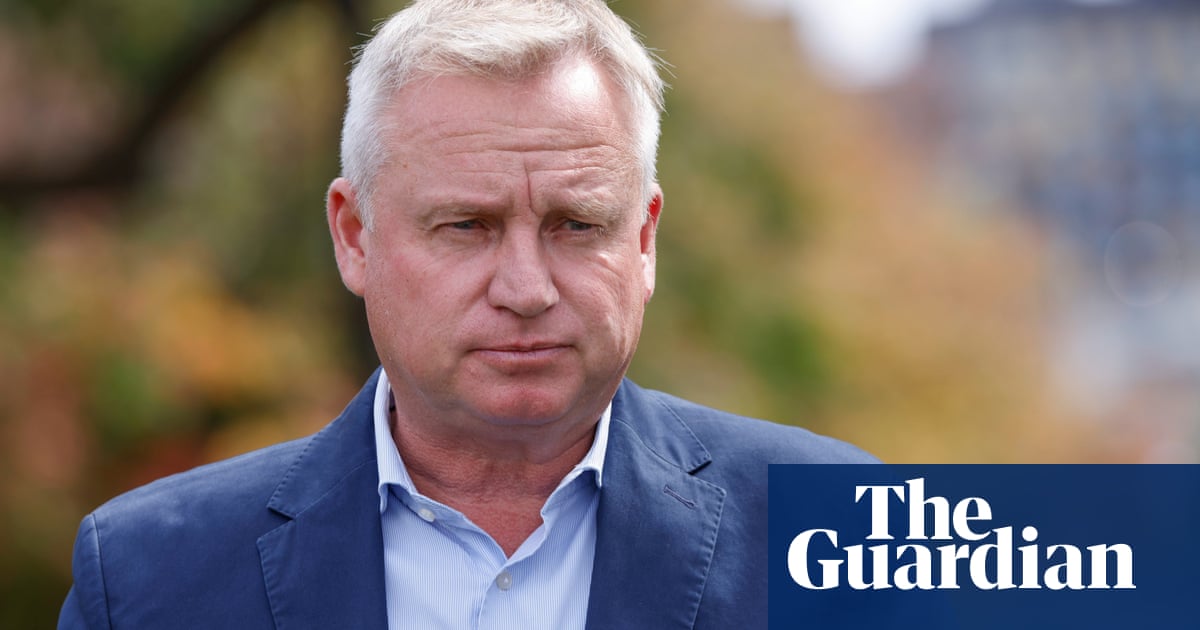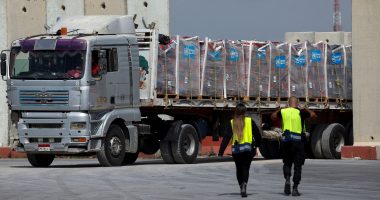
Jeremy Rockliff brought this on himself.
The Tasmanian premier – the leader of Australia’s sole Liberal government – called an election a year earlier than required, believing he could persuade voters to reject the “chaos” of minority government and reward his party with a fourth straight majority victory. Tasmanians didn’t buy it.
Before the election, Rockliff was struggling to deal with the demands of two ex-Liberal MPs who quit the party and became independents. That looks a much simpler ask than what lies ahead.
It could be weeks before the final makeup of the Tasmanian parliament is known but the Liberals will be well short of the 18 MPs needed to form a government in their own right. They will have at least 14, probably 15.
It means Rockliff will need to win support from members of a multi-coloured and expanded crossbench to survive.
The ex-Liberals who caused him so much grief in the last term, John Tucker and Lara Alexander, are both gone, rejected by their electorates. But the parliament is likely to include five Greens, two or three new MPs representing the Jacqui Lambie Network and a couple of independents with generally progressive views and links to the Labor party.
It makes Rockliff’s exultant declaration on Saturday night that the early results looked “like a fourth consecutive win for the Liberal party” tone deaf, at best. Tasmanians collectively chose to give other MPs the final say on that.
What is clear is that the Liberals will have first stab at forming a government. Labor cannot win more than 11 seats, and the Labor leader, Rebecca White, said on Sunday that convention dictated that Rockliff would get the first opportunity. The Liberal leader said he had begun the negotiation process, having spoken with the federal senator Jacqui Lambie and some of her candidates, and contacted the likely independents David O’Byrne and Kristie Johnston.
What could happen from here? We know that Rockliff will have some serious persuading to do.
The arrival of JLN is uncharted terrain for the Tasmanian parliament. The party ran with few, if any, policies and has no membership base to shape its views. It exists solely due to Lambie’s popularity, mostly in the state’s north, as a colourful and blunt outsider politician who promises to stick it up the establishment. Little is known about how the candidates who could be elected in her name would handle that responsibility.
At the moment Lambie is Rockliff’s main contact point for negotiations and she has made no secret of her unhappiness with the premier.
She told the ABC on Saturday that his government had been “crap”. And she expressed anger over the Liberals’ sharp criticism of her in the campaign. They included a Liberal-endorsed attack website set up to look like, and with a similar url to, the actual JLN site.
Many political observers, including some Liberals, thought this was madness. The attacks came as every poll suggested the government would not be re-elected in its own right and would likely have to rely on JLN MPs. A central question now is whether this can be quickly patched up or will ultimately be seen as an extraordinary act of self-harm on the part of Rockliff and his advisers.
What might happen from here? No predictions, but let’s consider some scenarios.
Rockliff has ruled out negotiating with the Greens, and says he will not compromise on the so-called “2030 strong plan” released during the campaign. Taken at face value, it sounds like his starting position with JLN, O’Byrne and Johnston is that they should agree to back his agenda – and maybe they would be thrown a win or two in return.
after newsletter promotion
The best that can be said about this approach is: good luck with that. Rockliff already tried it with Tucker and Alexander and failed – and they were elected on the Liberal platform as Liberal MPs. That won’t apply to the new crossbench.
Another possibility would be for the Liberals to go into a formal coalition with crossbench members, including potentially offering ministries to MPs outside the party – but Rockliff has already ruled this out.
The most pragmatic approach would be to reach a deal with some of the crossbench on supply and confidence to ensure the government’s survival, and for other legislation to be dealt with on a case-by-case basis. It would make for an interesting and, if acted on in good faith, genuinely democratic parliament.
Little in the Liberals’ behaviour of the past year suggests they are open to this more collaborative model or that they have the nimbleness required to manage it. It would raise fresh challenges for Rockliff’s leadership, which may come under threat after Saturday’s result and as the Liberal party room becomes increasingly conservative (see: the election of former senator Eric Abetz). But it may be their only choice if they want to govern.
A less likely scenario is one that could eventuate if the Liberals’ attempts to form a government collapse and Labor then drops its pledge not to deal with the Greens and attempts to stitch together a traffic-light coalition from across the crossbench.
This idea – what the Germans call an Ampelkoalition – is obviously not the norm in Australia and would be likely to face consistent challenges to its legitimacy. Tasmanians have been here before, including when Labor and the Greens governed in coalition after the 2010 poll despite the Liberals getting the most votes. It didn’t end well.
Views within Labor differ on this, and White seemed to leave open the possibility on Saturday night before walking it back on Sunday. Significant parts of the party would rather leave it to the Liberals to try and fail – and then go to another election, if it came to that.
The reality is that winning a majority of seats in Tasmania’s newly expanded 35-member parliament, with seven members each in five multi-member electorates, is going to be increasingly difficult.
White made this point on Saturday, arguing that the results showed “a significant shift in the way politics operates in Tasmania”. “We can expect to see this happen again and again. It is very likely Tasmanians will continue to elect minority governments,” she said.
It means politicians in the state are likely to have to learn to operate differently for the system to work. But old ways are slow to die: don’t expect change to come overnight.
Read More: World News | Entertainment News | Celeb News
Guardian







